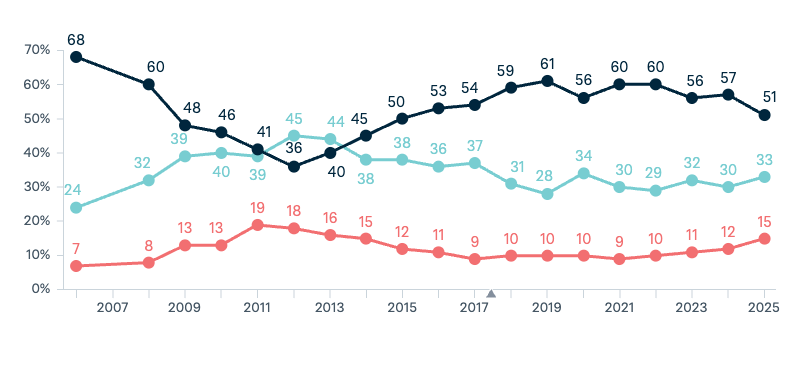Climate change and energy
40 questions match this theme. View the archive for more.
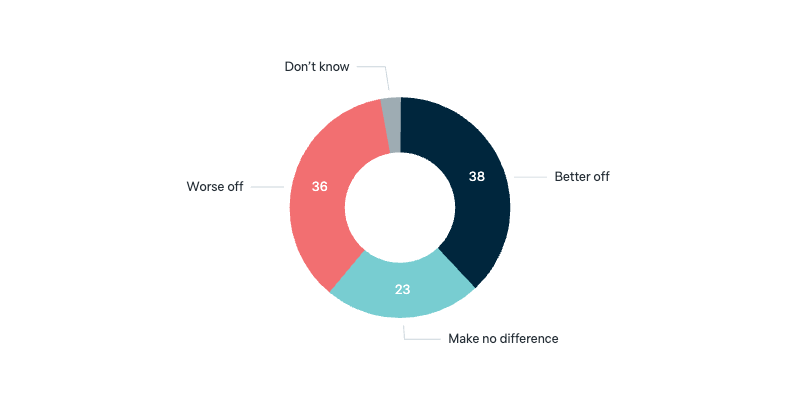
Climate change and energy
Net zero: economic opportunity or cost
Both major political parties in Australia have committed to bringing Australia’s national greenhouse gas emissions down to net zero by 2050. This presents both costs and opportunities for the economy.
Asked in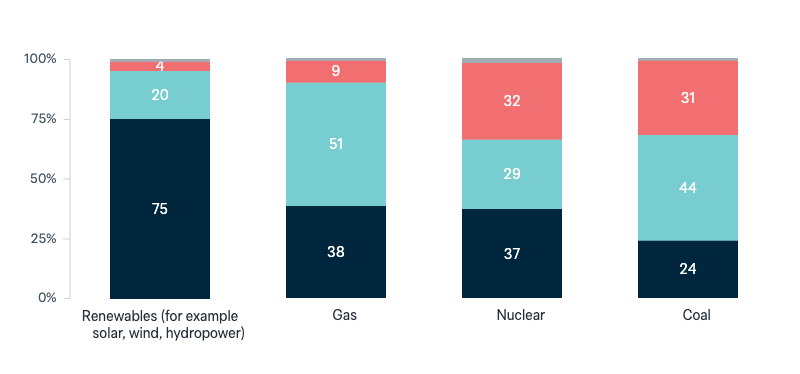
Climate change and energy
Australia’s 2050 energy mix
Thinking again about the aim to bring Australia’s national greenhouse gas emissions down to net zero by 2050.
Asked in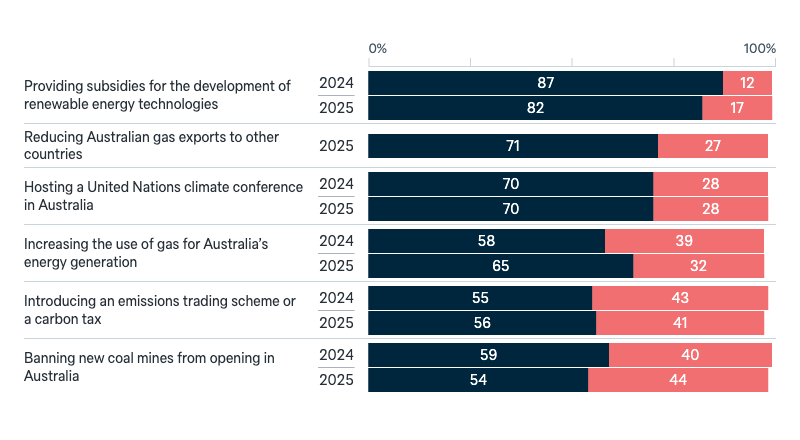
Climate change and energy
Potential federal government policies on climate change
Would you support or oppose the following federal government policies?
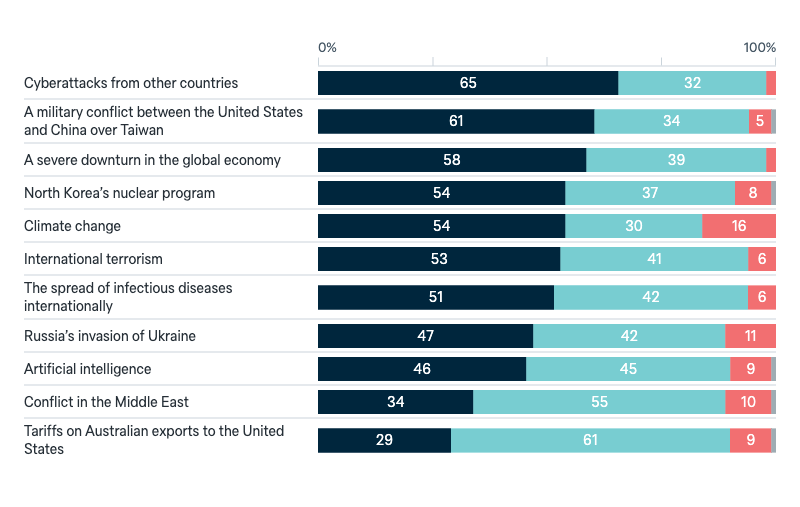
Safety and threats
Threats to Australia’s vital interests
Do you see the following possible threat as a critical threat, an important but not critical threat, or not an important threat to Australia’s vital interests in the next ten years?
Questions from previous years
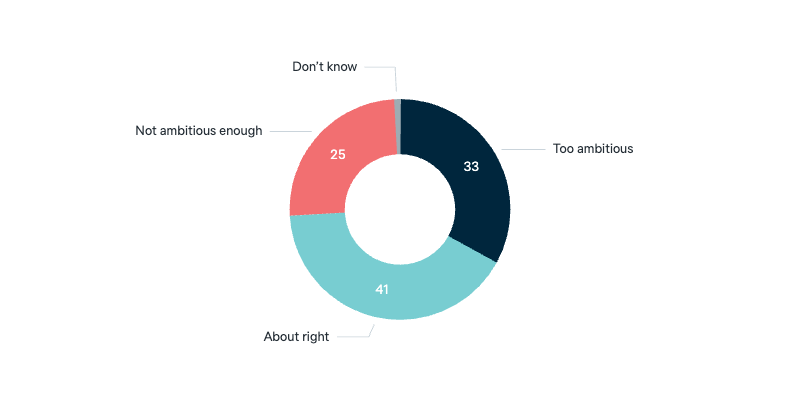
Climate change and energy
Australian renewable energy target
Now for a question about renewable energy sources such as solar or wind. The current federal Labor government has set a national Australian target for 82% of electricity to be generated through renewables by 2030. Do you think Australia’s target to transition to renewable energy is…
Asked in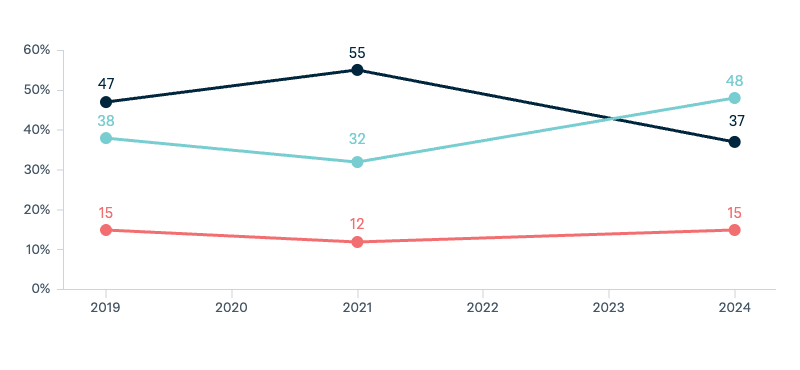
Climate change and energy
Energy policy priorities
Now thinking about Australia’s energy policy, including electricity and gas. Which one of the following goals do you personally think should be the main priority for the federal government?
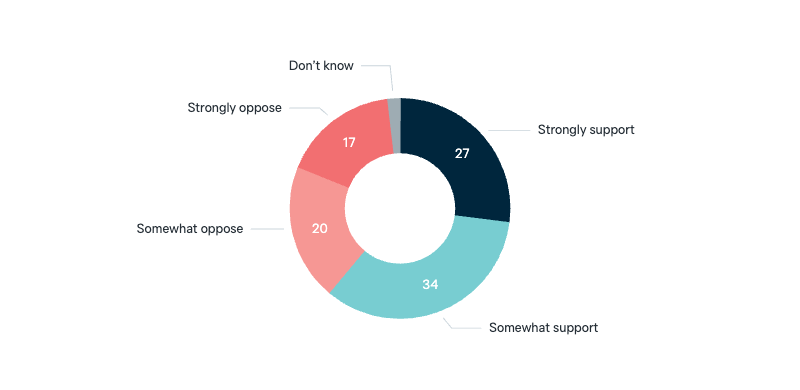
Climate change and energy
Nuclear energy
Now a question about nuclear power. Do you support or oppose Australia using nuclear power to generate electricity, alongside other sources of energy?
Asked in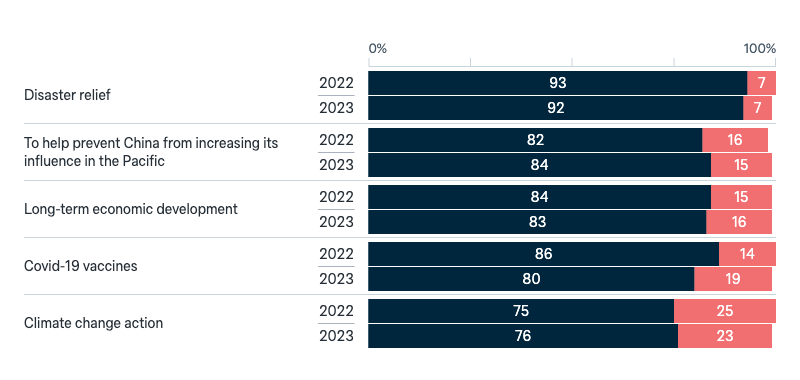
Australia and the Pacific
Foreign aid to the Pacific
Thinking specifically about foreign aid to Pacific Island nations. Would you personally be in favour or against Australia providing aid for the following purpose:
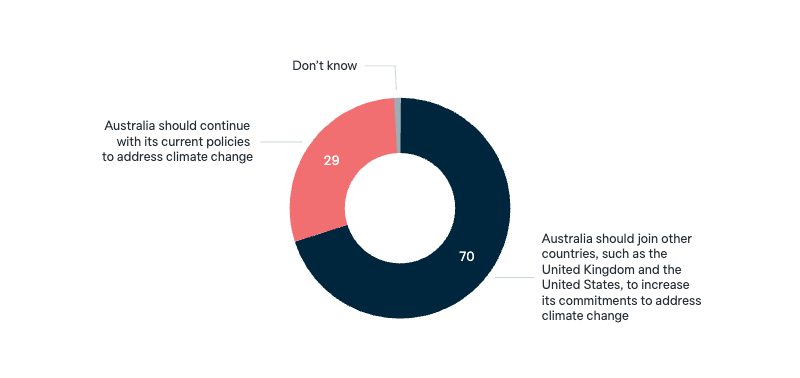
Climate change and energy
Australia’s approach to international climate change negotiations
In the leadup to the 2021 United Nations Climate Change Conference in Glasgow, which one of the following two statements most closely represents your own view of the approach the Australian government should take in international climate change negotiations?
Asked in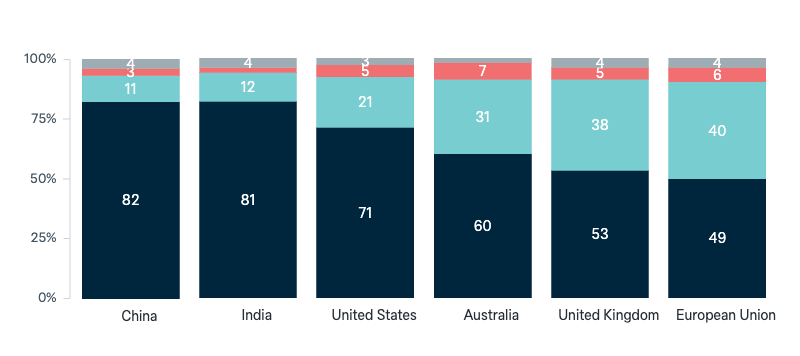
Climate change and energy
Climate change efforts by country
For each of these countries, do you think they have done too much, too little, or about the right amount in their effor to combat climage change?
Asked in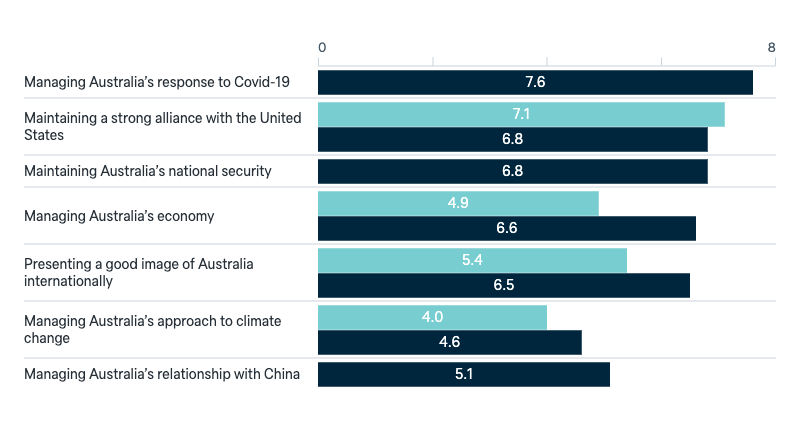
Australian government performance
Coalition government report card
What mark out of ten would you personally give the Coalition Government in Canberra for its performance in handling each of the following issues — with 10 meaning it has done an excellent job, 5 an average job and 0 a very poor job?
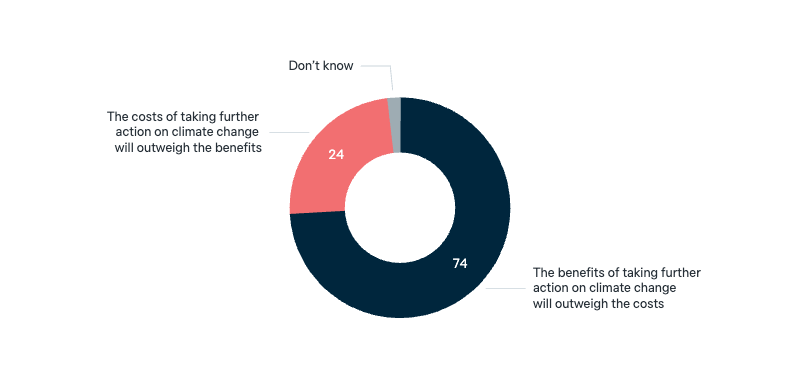
Climate change and energy
Costs and benefits of climate change action
Which statement is closest to your personal view on further action on climate change?
Asked in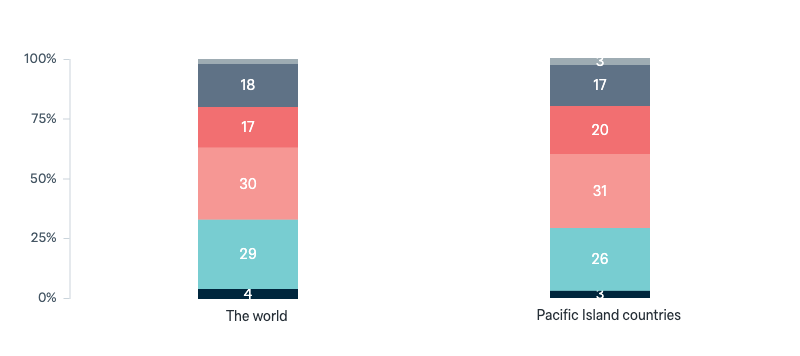
Climate change and energy
Australia’s climate policies and reputation
In your opinion, what effect, if any, has Australia’s approach to climate change had on its reputation in the world and on its relationship with Pacific Island countries?
Asked in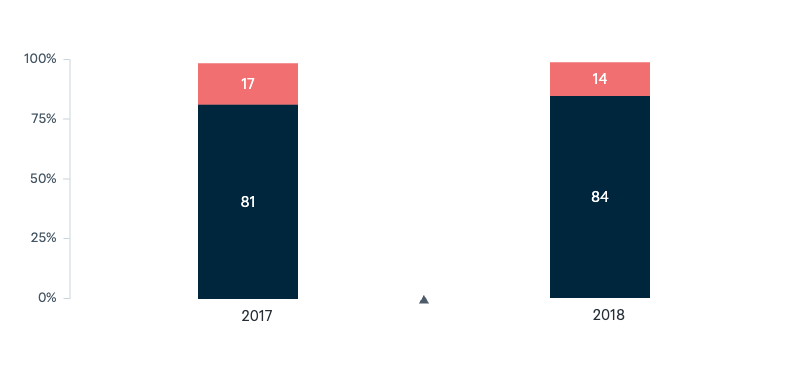
Climate change and energy
Renewables and energy supply
I am going to read some statements about renewable energy and energy supply. Please say which one of these statements comes closest to your own point of view:
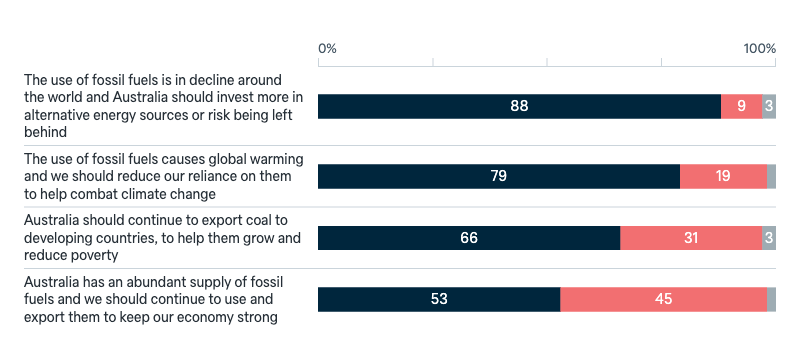
Climate change and energy
Attitudes to fossil fuels
Now here are some statements made by other people about fossil fuels such as coal. Please say whether you personally agree or disagree with each of the following statements:
Asked in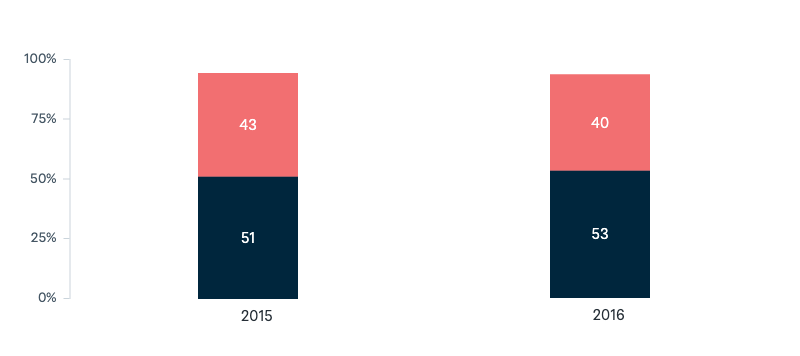
Climate change and energy
Direct action or emissions trading scheme
Next about carbon emissions. In your personal view, which one of the following would you most prefer that the federal government do to reduce carbon emissions?
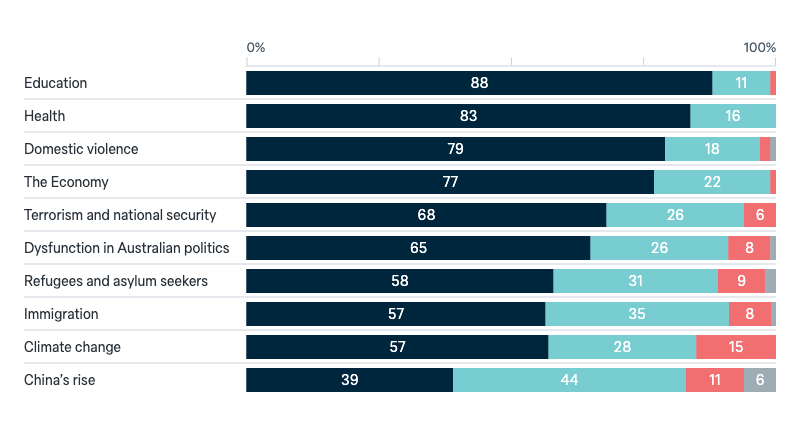
Australian foreign policy
Important issues facing Australia
Please say whether you personally think each of the following is a very important issue, a somewhat important issue, or not an important issue facing Australia at the moment:
Asked in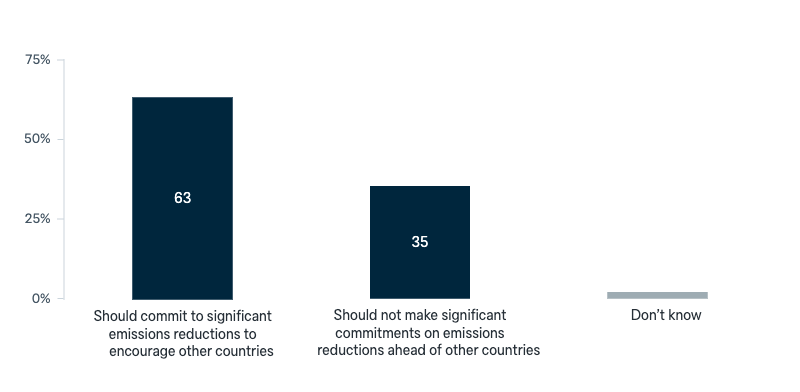
Climate change and energy
Australia’s approach to multilateral climate negotiations
In the lead up to the 2015 UN climate change conference in Paris 2015, which one of the following two statements most closely represents your own view of the approach the Australian government should take in international climate negotiations?
Asked in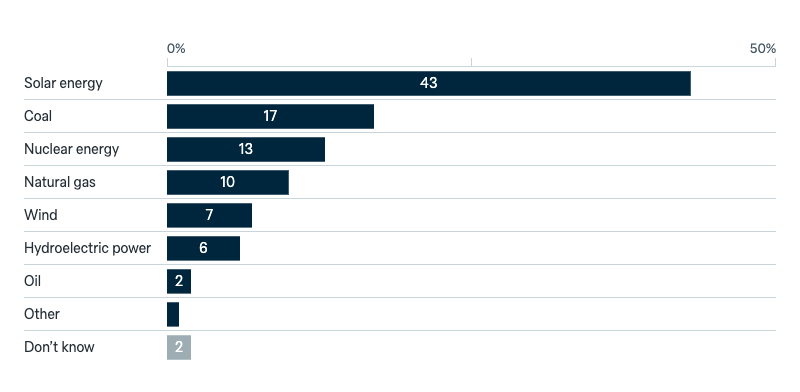
Climate change and energy
Future sources of electricity
Which one of these energy sources do you think will be our primary source of electricity 10 years from now?
Asked in
Climate change and energy
Leadership or consensus role on climate action
Thinking now about international policy on the issue of global warming and carbon emissions, which ONE of the following comes closest to your own personal views on what the Australian government should be doing?
Asked in
Climate change and energy
Emissions Trading Scheme legislation
Thinking now about the legislation the Gillard Labor government passed last year introducing a fixed price on carbon that will then lead to an Emissions Trading Scheme. Are you personally in favour or against this legislation? Is that strongly or somewhat?
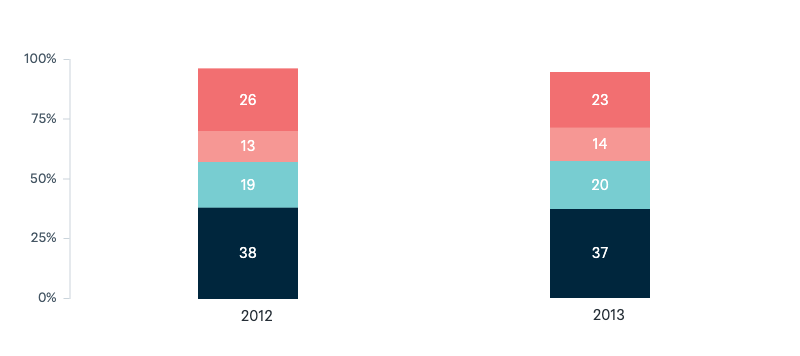
Climate change and energy
Removal of Emissions Trading Scheme
And if a Liberal Nationals Coalition government is elected at the next Federal election, would you personally be in favour or against that Coalition government removing the Emissions Trading Scheme set up by the Gillard Labor Government? Is that strongly or somewhat?
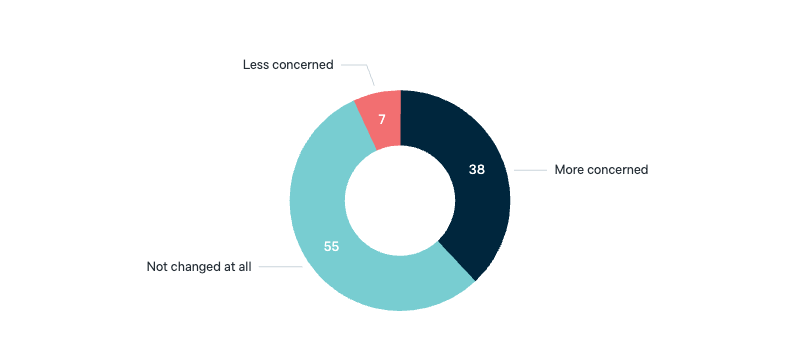
Climate change and energy
Concern about climate change
Since the climate change debate began in Australia, have you personally become more concerned or less concerned about climate change than you were when the debate began in Australia, or, have you not changed your mind at all?
Asked in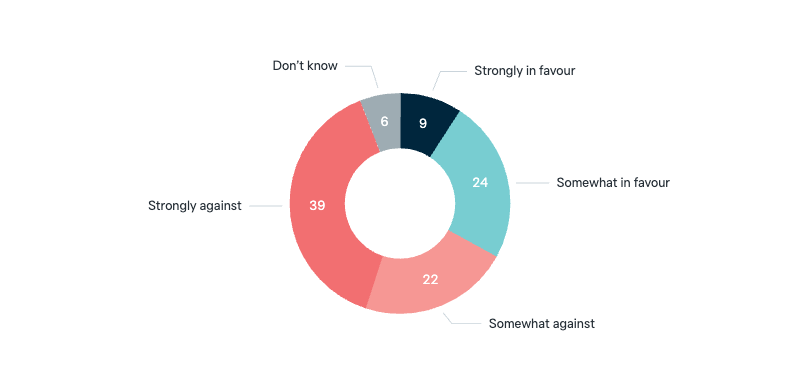
Economy and trade
Exporting uranium to India
Are you personally in favour or against Australia selling uranium to India? Is that strongly or somewhat?
Asked in
Climate change and energy
Reasons for opposing an emissions trading scheme
You said you were against the legislation. For each one of the following please say whether you agree or disagree it is a reason why you personally are against the legislation:
Asked in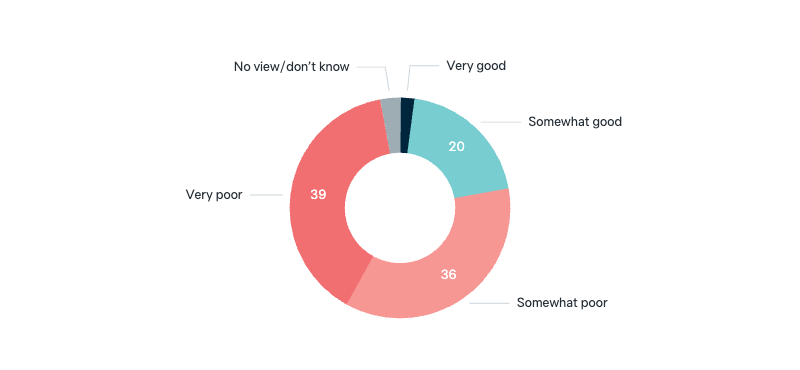
Climate change and energy
Federal government’s efforts on climate change
Now about the current Federal government’s efforts to address climate change? Do you think the current Federal government has done a good job, or a poor job, in addressing climate change?
Asked in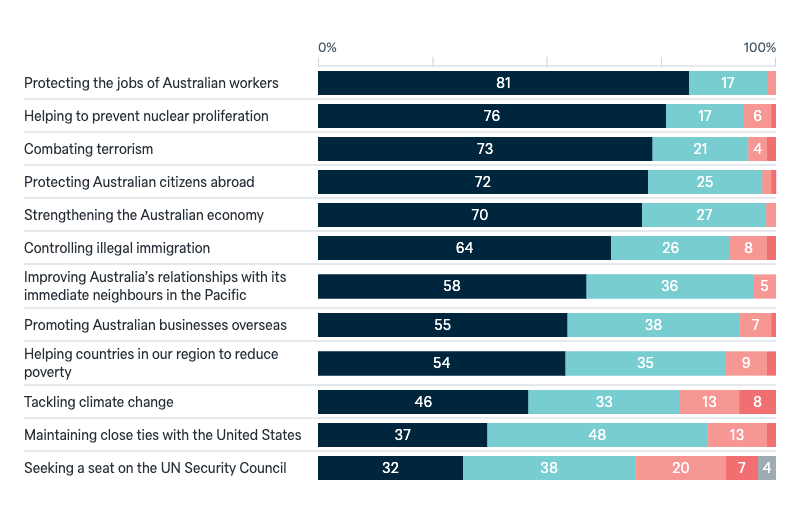
Australian foreign policy
Goals of Australian foreign policy
Thinking about what Australian foreign policy should be trying to achieve, I am going to read a list of goals, and ask you to tell me how important each one is for Australia.
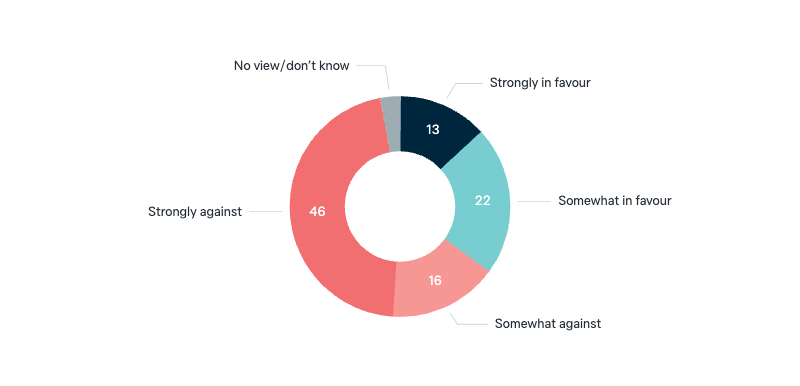
Climate change and energy
Nuclear power in Australia
Are you in favour or against Australia building nuclear power plants as part of its plans to cut greenhouse gas emissions?
Asked in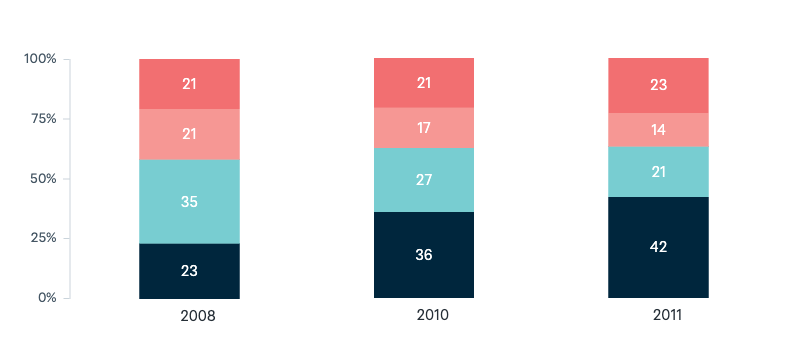
Climate change and energy
Willingness to pay for climate solutions
One suggested way of tackling climate change is to increase the price of electricity. If it helped solve climate change how much extra would you be willing to pay each month on your electricity bill?
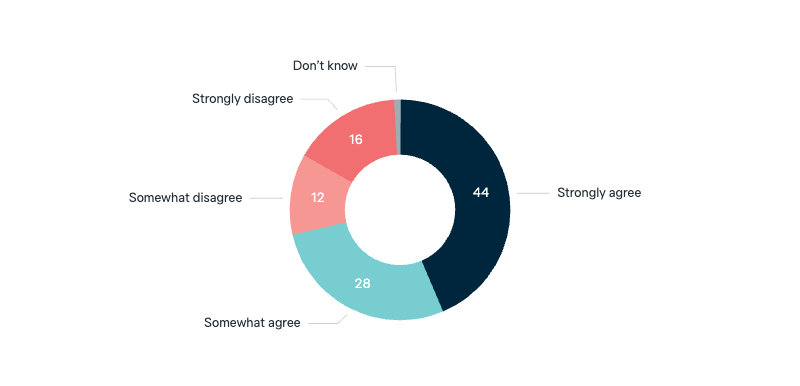
Climate change and energy
Reduction of emissions ahead of global agreement
Do you personally agree, or disagree that Australia should take action to reduce its carbon emissions before a global agreement is reached?
Asked in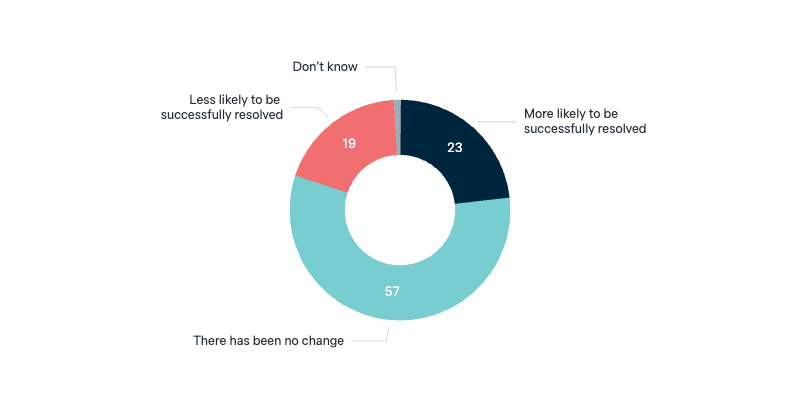
Climate change and energy
Likelihood of solving climate change
Over the past 12 months do you think a solution to the problem of climate change has become:
Asked in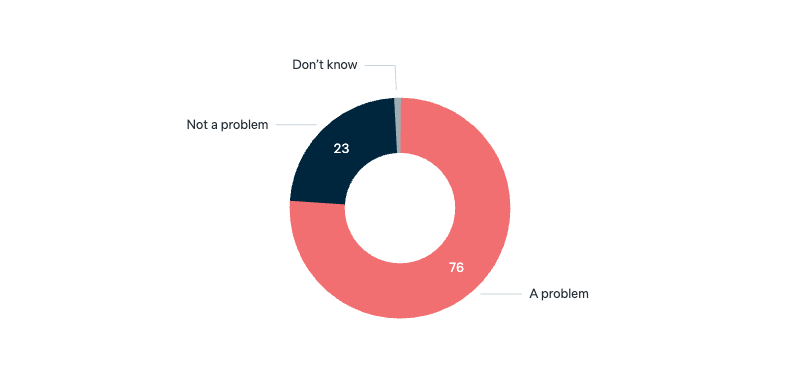
Climate change and energy
Problem of climate change
Would you say climate change is a problem or is not a problem?
Asked in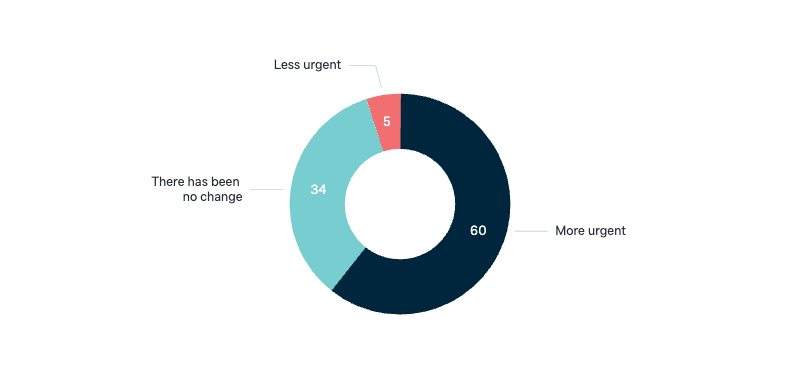
Climate change and energy
Urgency of climate change
Over the past 12 months do you think obtaining a solution to the problem of climate change has become:
Asked in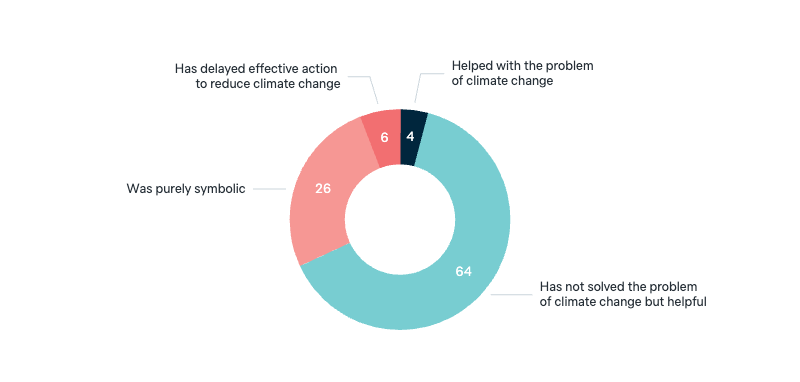
Climate change and energy
Effectiveness of Kyoto Protocol
The Australian government recently ratified the Kyoto Protocol. Please say which of the following statements comes closest to your own belief. Australia’s ratification of the Kyoto Protocol:
Asked in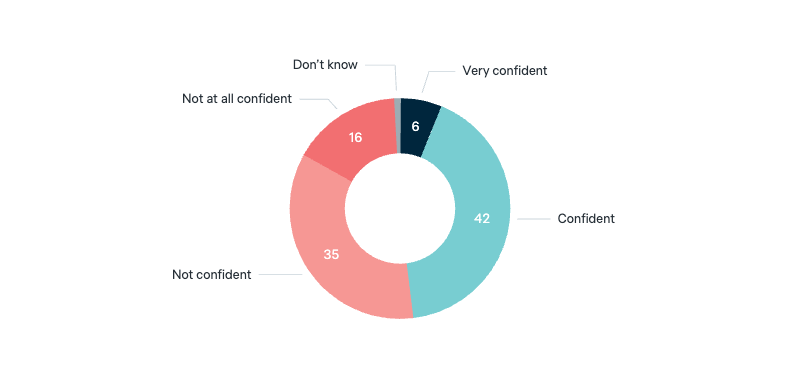
Climate change and energy
Government’s ability to deal with global warming
Global warming is seen as an important issue. How confident are you in the government’s ability to deal with this issue?
Asked in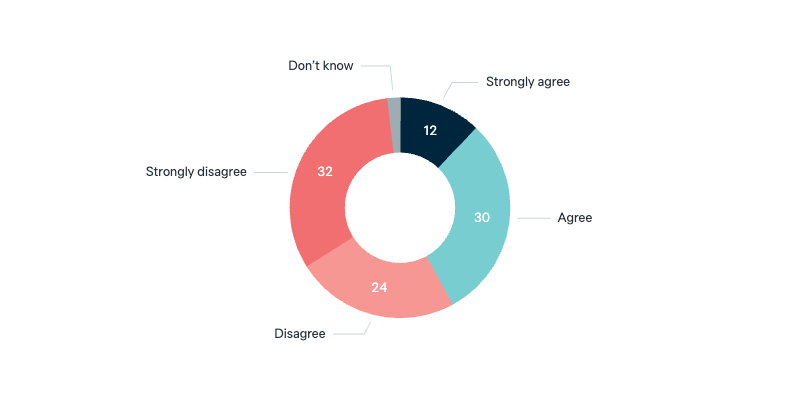
Climate change and energy
Uranium exports and nuclear waste
Should Australia take responsibility for nuclear waste from its uranium exports?
Asked in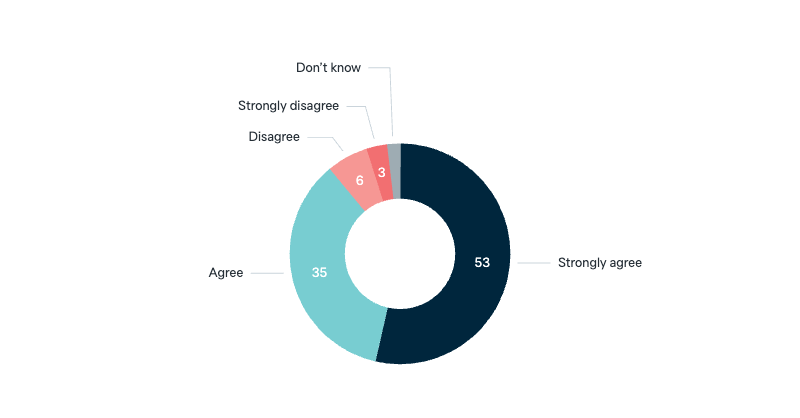
Climate change and energy
Uranium exports to signatories of the Non-proliferation Treaty
Should Australia only export uranium to countries that have signed the global Nuclear Non-proliferation Treaty?
Asked in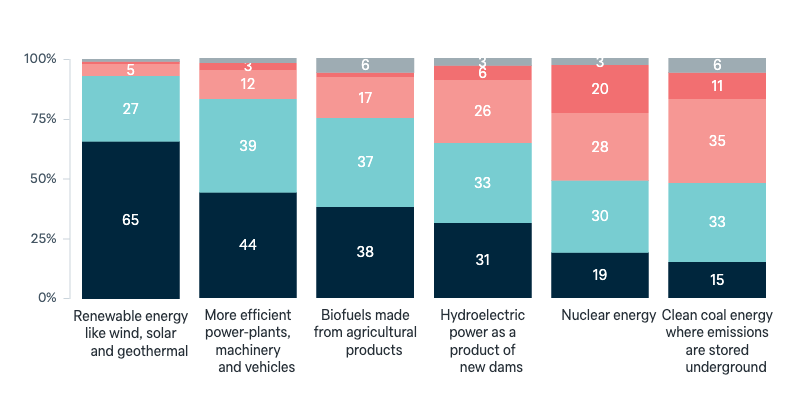
Climate change and energy
Alternative energy options
On the issue of climate change ... Thinking about the next 25 years in Australia, please say how convincing you find the case for each of the following methods.
Asked in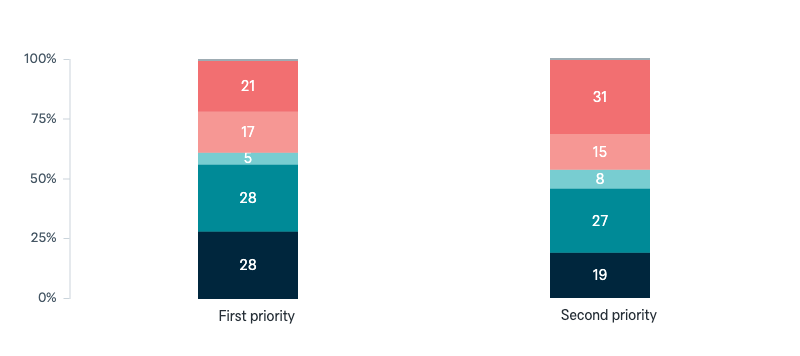
Climate change and energy
Importance of climate change goals for Australia
In terms of Australia’s overall priorities, which one of the following goals should be most important to Australia?
Asked in
